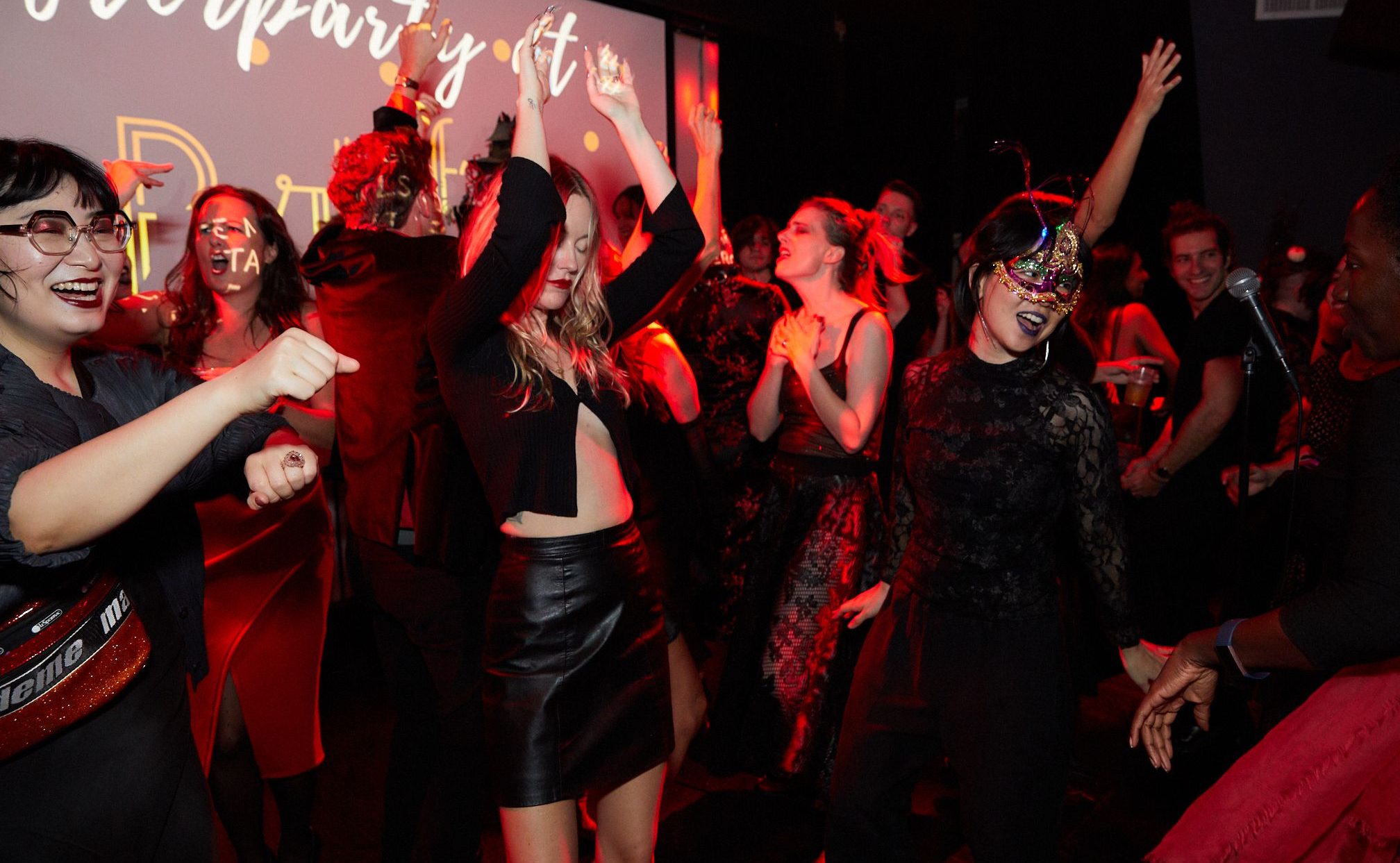news
Wandering with A Public Space

1. Crowd cold chillin’.
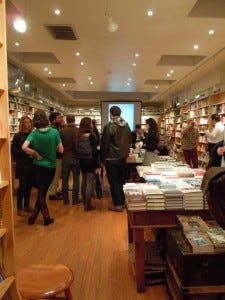
It’s been busy for Cobble Hill’s BookCourt recently: the store hosted the dumpling extravaganza that was Adam Wilson’s launch party for Flatscreen (read Julia’s interview here), a launch party for the new literary journal The Bad Version, and last night they had the issue launch for the 15th issue of A Public Space. In this issue, writers of fiction, poetry and essay comment on the issue’s theme of wandering. APS invited poet Timothy Donnelly (The Cloud Corporation; most recently awarded the Kingsley Tufts Poetry Award) and fiction writer/essayist Leslie Jamison (The Gin Closet) to read their contributions.
I got there a little early, which is both a good and bad thing. If I have cash on me and I’m in a book store, it’s hard to keep it in my wallet. Thankfully, BookCourt also has an amazing bargain section downstairs. I nabbed old issues of UNSAID and The Literary Review for a $1 each, and then glued myself in my seat with the new APS. I covered the last issue’s launch at BookCourt, which looked at the similar theme of the solitary walker. While I flipped through the issue, I thought about APS’ approach: the inclusion of different genres to communicate a theme is comprehensive and allows for a nuanced aesthetic that, even though two issues can hunt out similar narratives, generates a singular dialogue. In short, APS is legit.
1. Founding Editor Brigid Hughes introducing APS15. 2. Tim Donnelly-as-Nimrod, apologizing for defying YHWH.
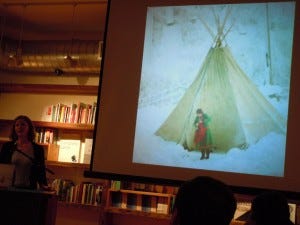
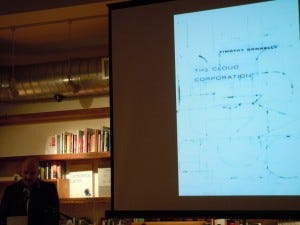
Timothy Donnelly was first on the mic. Donnelly read his APS contribution along with two new poems — his first batch after a hiatus of writing — whose wandering speaker pondered the lasting power of stairs and the Tower of Babel. Stairs have lasting power, Donnelly said during his introduction, and he thought about the great vertical distances they help people to cross. His first poem’s speaker voiced this concern, and led him to a meditation on language as a staircase, “that nowhere humming in between one phoneme and the next.” Donnelly reads breathlessly, as if in a dire rush to get the words out before they’re gone. His next poem inhabited Nimrod who, upon receiving much public hate for building the Tower of Babel in Donnelly’s poem, merely said “it sounded like good civic planning.” Nimrod disappears as the speaker, replaced by an omniscient voice who calculates that, if the Tower of Babel had been finished, would have crushed the earth by matching its mass. Donnelly’s wanderers were reciprocal, using words as steps back into themselves, and left crushed by their own language.
1. Leslie Jamison on the West Memphis Three and Paradise Lost: “Six characters splitting custody of youth.” 2. The recently freed West Memphis Three!
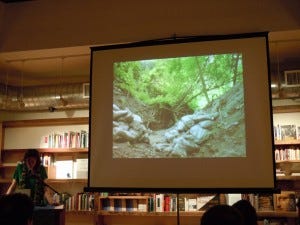
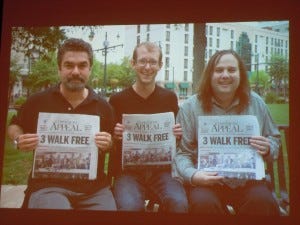
Founding Editor Brigid Hughes was very excited to have Leslie Jamison read her essay “Lost Boys,” a memory of wandering through the West Memphis Three case. Jamison, who won the 2011 Greywolf Press Non-Fiction Prize for “The Empathy Exams,” had her first published essay in APS3. APS can now totally claim to be a literary debutante institution. Jamison said she’d followed the case since she was 10 or 11 years old, re-watching Paradise Lost, the documentary trilogy chronicling the case, many times. Her reading was supplemented by stills from the movie. The first, a photo of a ditch nesting three small wrapped bodies, accompanied this chilling line: “‘Don’t let nobody in here,’ the men say, as if boys protecting a fort. Except there are no boys.” Jamison’s clarity of phrase and sensitivity to both the facts of the case and the narrative constructed in the documentaries showed her personal wandering of truths. “If it’s all edited, couldn’t there be another ending?” The West Memphis Three were recently released because of the Alford plea. According to Jamison, is “the state admitting it’s wrong, without admitting it’s wrong”? Jamison discovered, through several views, that the West Memphis Three’s story was “a story underneath a story underneath a story about poverty … about white trash families kneeling at the death of their sons.”
1. Jake Elmets, photographer and butcher, with Claire Comstock-Gay, a musician and has an “MFA in mayonnaise sciences.” 2. Elizabeth Clarke Wessel, editor at Argos Books and Circumference: poetry in translation; Marina Blitshteyn, author of Russian for Lovers (Argos Books); Joshua Edwin, editor at Circumference, poet, & North Korean spy; and Tanya Paperny, writer/editor/translator. We did a five-way handshake after this. They’re fun.
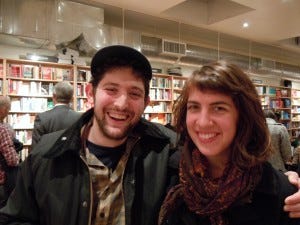
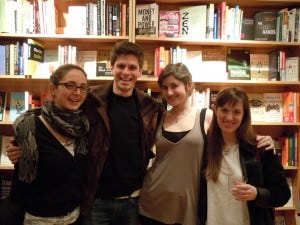
What’s unique about APS as a literary journal is its approach to creating the relationship and dialogue between reader and author. The authors in the journal are not arbiters of fact but sharers of experience, which is a space everyone should wander into. You can nab APS15 at BookCourt, or order it here.
***
— Ryan Chang is from Orange County, CA and lives in Brooklyn. He is the Staff Writer for the Outlet, and his work has previously appeared in Thought Catalog. He is in the internet here and here.







